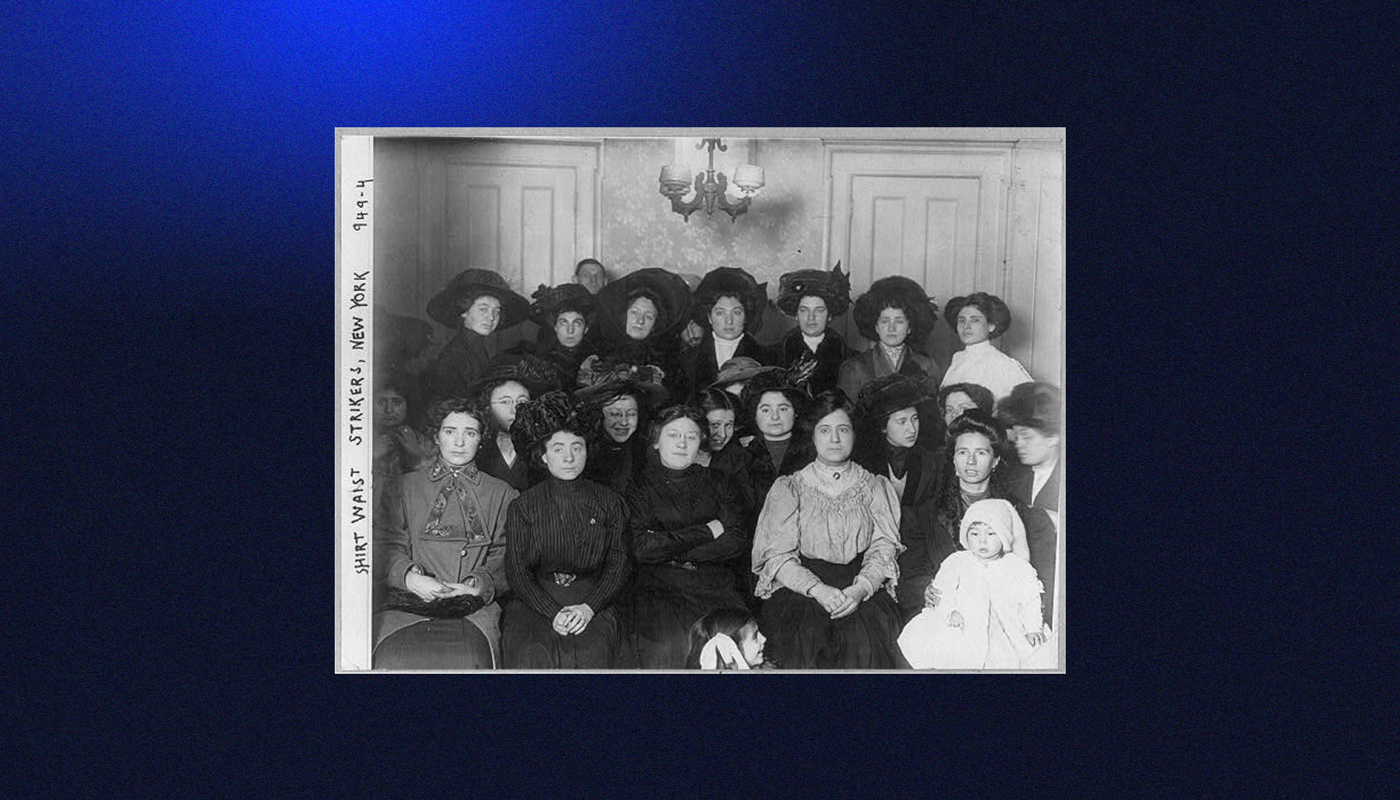As of this past weekend, it has been 112 years since a mixture of capitalist exploitation, malignant neglect, disregard for vulnerable members of society, and unfortunate chance led to one of the most terrible industrial accidents in U.S. history and the deaths of 146 people, mostly immigrant women and girls. The story of the Triangle Shirtwaist Factory fire is not one of heroism or redemption or narrow escape, or even accountability — the two men who owned the factory leaped safely to another building during the conflagration, were acquitted of all charges, and opened another factory within months.
So why do we remember it?
The answer is, of course, that the tragedy provided the impetus for a spate of labor reforms that would protect workers for decades, form the backbone of the New Deal, and drive Frances Perkins to do the work that would make her the first woman appointed to the Cabinet—as Secretary of Labor.
And that would be enough for a Women’s History Month acknowledgment all by itself. Women suffered; women became activists, and women won some protections! Yay us. But in our modern moment of increasing government inaction, widening income inequality, and creeping capitalist hellscapes, I wonder if the Triangle Shirtwaist Factory fire could be an inspiration as a key juncture in the Progressive Movement.
Part of the reason that the mass immolation of poor immigrant girls and women got so much attention was because barely a year earlier many of them (or people like them) had been on the streets in a strike called the Uprising of the 20,000. From November 1909 through February 1910, thousands of garment workers walked off the factory floor in protest of low wages, extreme hours, and—you guessed it—unsafe working conditions.
Initially the men-only newspapers covered it as a novelty. As days and weeks passed without it weakening, it was given the import of a “serious” strike, especially as it spread to Philadelphia, where beleaguered factory owners hoped to source scabs.
But the biggest shift in the uprising and the source of the attention and advocacy that would follow the Triangle fire tragedy was the alliance of society suffragettes who supported their cause.
Powerful, wealthy, prominent and opinionated, several of New York’s suffrage-minded socialites supported the uprising, renting halls where strikers could meet and organize, using their political influence to secure march permits and massive rally space, and yes, even paying bail for girls who were attacked by strikebreakers, or got into altercations with scabs.
It’s hard to imagine it now, with the midcentury social mobility still in living memory, but these were radical acts of cross-cultural solidarity. In 1909, immigrant women were only conditionally white, many of them having limited English, few to no resources, and living conditions that would make you grateful for that indoor-outhouse studio apartment that made you gasp while scrolling on TikTok. To get the support of some of the most prominent women in society was extraordinary under these circumstances.
That’s not to say that the socialites’ support came without an agenda: they were looking for future suffragists in the crowds of overworked women, even if they tried to frame their support as incidental. The wealthy women correctly noted that protections for women workers, for women’s spaces, and for women’s lives would not be taken seriously without the ballot.
In the wake of the fire, it was this political solidarity that created a rapid response from society and state and local governments to do something to prevent another tragedy in “women’s work.” The commission that was formed made dozens of suggestions after extensive tours of manufacturing facilities, and the changes they wrangled out of the system are ones we still use: internal sprinkler systems, fire escapes, sanitation, and safe storage for volatile materials. In four years, the Factory Investigative Commission would draft and pass three dozen bills into law, addressing everything from safety to child labor.
The response to the Triangle Shirtwaist Factory fire and the unique bonds that made it stand out in an era of labor malpractice can inspire us today to forge alliances across improbable gaps, to align our causes where we can, and to recognize the power of organizing in mutual interests.
And yeah, if you have it, don’t forget to toss some cash towards a cause. If we’re aligned enough, supported enough, and funded enough, maybe we won’t need a tragedy to change our world.



















































